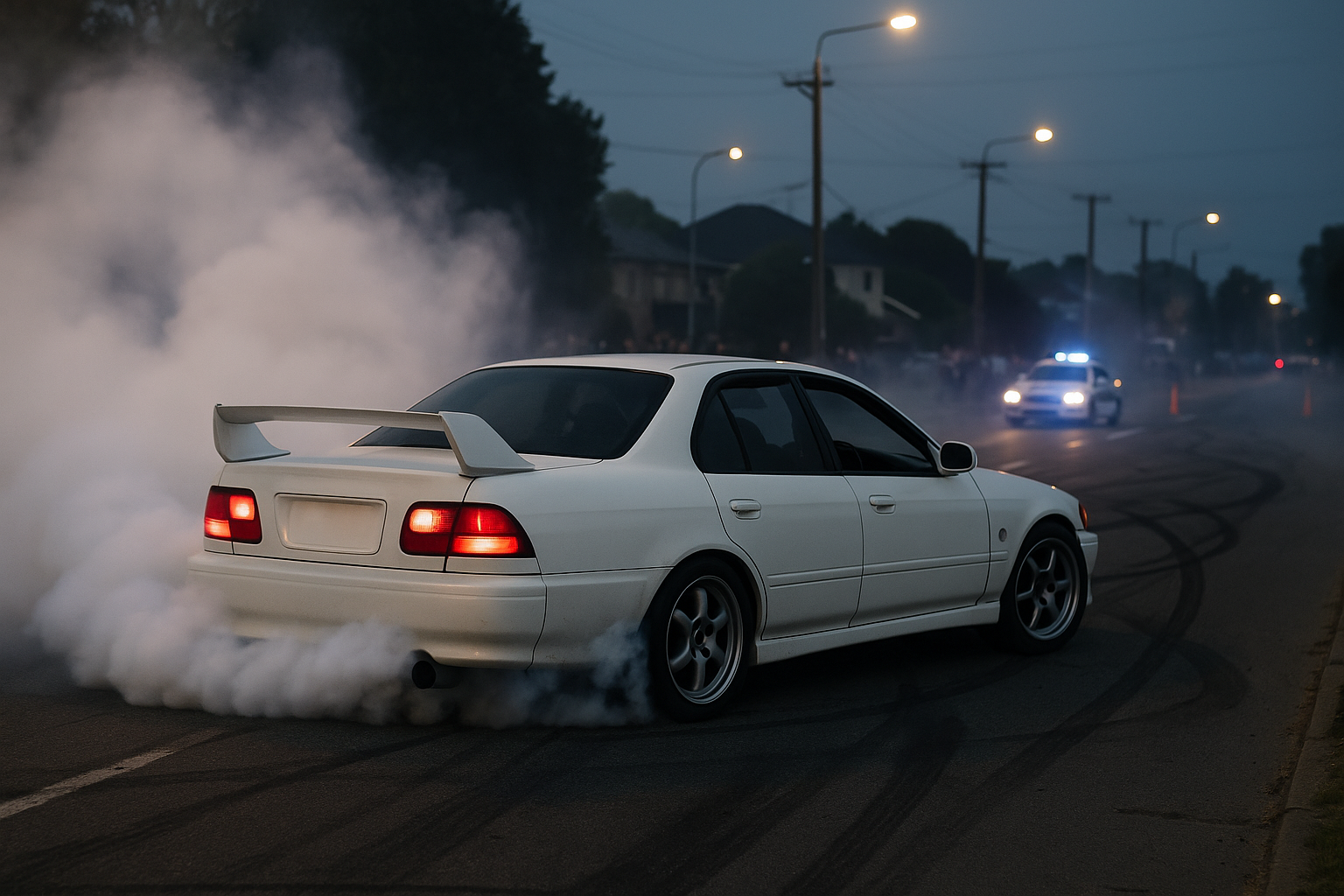Govt Cracks Down on Boy Racers with Tough Road Safety Laws
“New Zealanders are sick of seeing boy racers and dirt bike riders putting everyone around them at risk,” said Mr Bishop.

- Country:
- New Zealand
The New Zealand Government is sending a stern message to boy racers, dirt bike riders, and other reckless drivers: behave or lose your vehicle. In a bid to restore public confidence in road safety and crack down on anti-social driving behaviour, Transport Minister Chris Bishop and Police Minister Mark Mitchell have unveiled the Anti-Social Road Use Legislation Amendment Bill, which introduces severe new penalties aimed at deterring illegal and disruptive road use.
“New Zealanders are sick of seeing boy racers and dirt bike riders putting everyone around them at risk,” said Mr Bishop. “This Government is serious about cracking down on unruly and dangerous driving and restoring safety to our roads.”
The Bill, now introduced to Parliament and scheduled for its first reading in August, signals a sweeping shift in how the country deals with illegal vehicle activity—from dangerous street racing to intimidating car convoys.
Key Measures: Presumptive Vehicle Forfeiture and Tougher Penalties
At the heart of the legislation is a presumptive sentence of vehicle destruction or forfeiture. This will apply to individuals involved in:
-
Fleeing from Police
-
Participating in illegal street racing or burnouts
-
Taking part in intimidating vehicle convoys
-
Failing to identify a driver responsible for an offence
Under this provision, judges will be expected—by default—to order the seizure, sale, or destruction of offending vehicles. It significantly raises the stakes for those using vehicles as tools of disruption, particularly for those who previously evaded serious penalties.
“Boy racers only care about one thing – their car,” Minister Mitchell said. “Once they realise they’re not getting it back, they’ll think twice about fleeing Police or driving dangerously.”
Increased Enforcement Powers for Police
The Bill also equips the Police with greater authority to disrupt and disperse illegal vehicle gatherings, which are becoming increasingly common in both urban and rural settings. Under the new powers, Police will be able to:
-
Close off roads or public spaces where illegal gatherings are occurring
-
Issue on-the-spot $1000 infringement notices to individuals who fail to comply with orders to disperse
This move is designed to put a swift end to convoys and other gatherings that often lead to dangerous driving, noise pollution, and intimidation of communities.
In addition, the government plans to increase the infringement fine for excessive noise from or within a vehicle—from a modest $50 to a more punitive $300. This targets one of the most frequent community complaints regarding anti-social driving behaviour: the relentless revving, music blasting, and modified exhausts.
Backing the Police and Local Communities
According to Minister Mitchell, Police are already taking strong action against such illegal behaviour through arrests, checkpoints, and other tactical operations. This Bill gives them a further edge. “These gatherings are dangerous to the participants, to bystanders, and to the public. This bill will support Police to continue cracking down with a raft of additional powers.”
The Ministers say the legislation reflects mounting community frustration. In many areas, especially quiet suburban and rural roads, communities have long felt powerless as convoys of noisy and aggressive drivers disrupt peace and pose safety risks.
“This is a clear message to those who think they can get away with dangerous and disruptive behaviour on our roads,” Bishop reiterated. “We’re backing Police with the tools they need to act, and we’re backing communities who’ve had enough.”
What Happens Next: Select Committee Review and Public Input
The Anti-Social Road Use Legislation Amendment Bill will undergo a four-month Select Committee process following its first reading. During this period, the public will have the opportunity to make submissions and provide feedback on the proposed changes.
Ministers Bishop and Mitchell have called on the public to participate, noting that community voices will help shape the final legislation.
If passed, the Bill will represent one of the strongest responses to anti-social road use in recent history, with an emphasis on deterrence, enforcement, and the protection of public safety.










